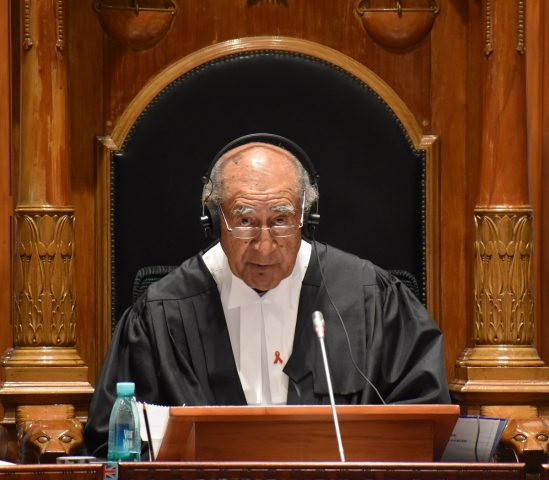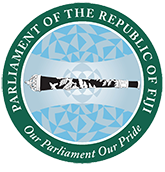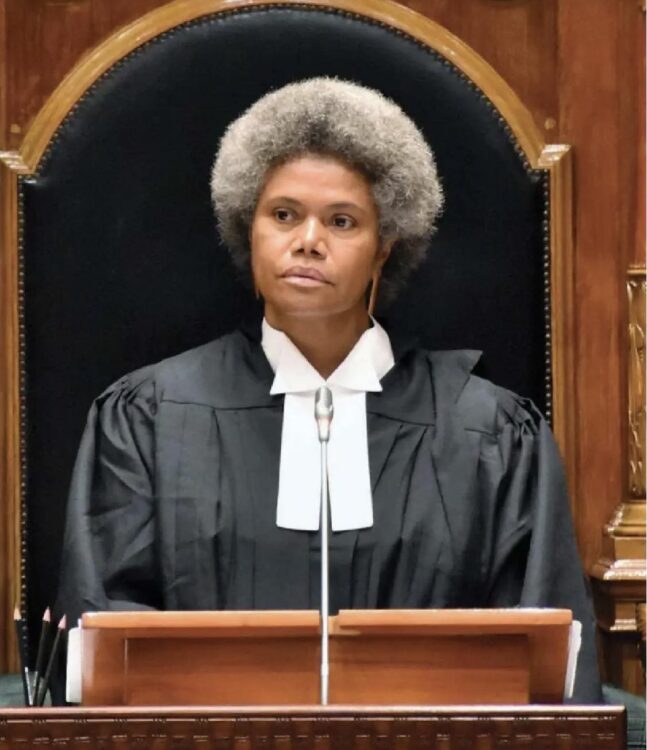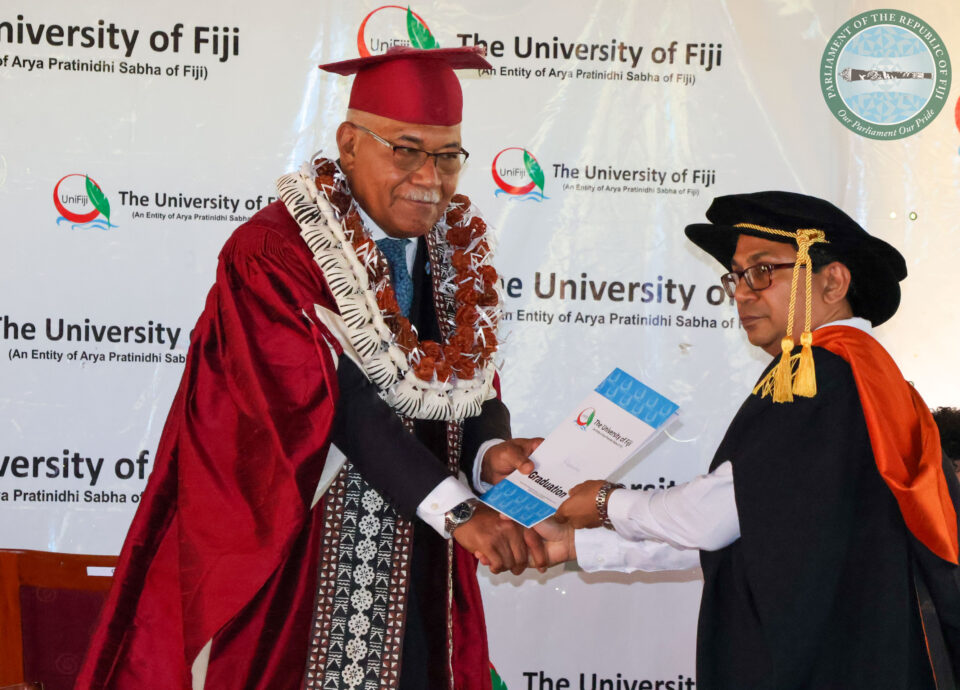International Day of Parliamentarism – Message by the Speaker of Parliament HE the Hon. Ratu Epeli Nailatikau

The International Day of Parliamentarism is celebrated annually on June 30th. The International Day of Parliamentarism was established in 2018 through a United Nations General Assembly Resolution and marks the date in 1889 when the Inter-Parliamentary Union (‘IPU’) was founded. According to the IPU, the International Day of Parliamentarism was instituted to celebrate Parliaments as the cornerstone of functioning democracies and as institutions designed to improve the lives of the people they represent. This is a time to reflect on the progress that Parliaments have made in achieving the key goals of Parliamentary democracy that include representation, transparency, accessibility, accountability, inclusiveness and effectiveness.
Fiji, as a member of the IPU joins the global community of Parliaments to mark the International Day of Parliamentarism under the theme of “public engagement”. Public or community engagement has become a key action of Parliaments around the world, as many work to strengthen public confidence in the integrity of Parliament and enhance accessibility for citizens. The IPU, in partnership with the United Nations Development Programme, recently launched the third Global Parliamentary Report on public engagement in the work of Parliament. The report is focused on why public engagement matters and how Parliaments across the world are engaging with the communities they represent. The report, which the Fijian Parliament contributed to recommends amongst other actions, that Parliaments: embed a culture of engagement across Parliament for a united and concerted effort towards broader and better public participation and make inclusion a priority so that Parliament is accessible to all members of the community.
The Fijian Parliament has invested heavily in a community engagement programme since the restoration of Parliament on 6 October 2014. Never before had the Parliament had a dedicated Civic Education and Media Unit to oversee its community engagement initiatives. It was a necessity to establish the Unit to address the gap in Fijians’ knowledge and understanding of how Parliament worked. When the Parliament re-opened on 6 October 2014 after a lapse of eight years, many Fijians, especially the youths, lacked a basic understanding of Parliament and how it worked. Community engagement and civic education became important actions for restoring public knowledge of Parliament’s functions and processes.
With the assistance of the United Nations Development Programme under the Fiji Parliament Support Project, two community engagement strategies were developed for the Parliamentary terms of 2015 – 2018 and 2019 – 2022 respectively. The current community engagement strategy sets out four objectives: raising the profile of Parliament in the community; educating the community about how Parliament works; informing the community about Parliament’s work; and encouraging community involvement with Parliament. A new revised strategy for the next four years will soon be launched and this takes into account many lessons learned from the previous years’ of work.
The community engagement and civic education programme includes initiatives to take Parliament to the people, to bring people to Parliament and to keep the community updated on what was happening in Parliament. These initiatives include the travelling road show known as the ‘Parliament Bus’ to symbolically connect with many Fijians in villages and schools across Fiji. We have also had the ‘Meet the Speaker’ programme that enabled communities to hear from the Speaker and ask questions about how Parliament worked in practice. The empowerment and participation of women and youths are initiatives that the Fijian Parliament has always supported. Since 2015, we have had targeted activities for youths and women, which were aimed at giving young aspiring leaders as well as women leaders a taste of Parliamentary work and national politics. These were also used to encourage these groups to aspire to be representatives and leaders in their communities.
Other community engagement initiatives include the Speaker’s Debate, educational tours of Parliament, professional development of teachers, production of educational videos and the publishing of newsletters, fact sheets and other Parliament-focused educational resources.
We are looking forward to restarting these initiatives which were put on hold in the last two years due to the COVID-19 pandemic.
Community engagement and civic education is part of the Parliament’s progressing of the United Nation’s 2030 Agenda and the Sustainable Development Goals (‘SDGs’). In particular, SDG 16 – ‘Promote peaceful and inclusive societies for sustainable development, provide access to justice for all and build effective, accountable and inclusive institutions at all levels’. This goal includes two important targets for Parliaments across the world: (16.6) develop effective, accountable and transparent institutions at all levels and (16.7) ensure responsive, inclusive, participatory and representative decision-making at all levels.
The aim of the Fijian Parliament is to enhance public engagement and to improve Fijian’s access to and the understanding of Parliament, its processes, practices and the opportunities available for participatory and representative decision-making.
Institutional strengthening is an important requirement that will enable Parliament to undertake its legislative, representative and oversight functions effectively. This had become more crucial amidst the COVID-19 pandemic which had a disruptive effect on many institutions including Parliament.
Since 2014, the Fijian Parliament secretariat had embarked on institutional strengthening and capacity-building for the staff; developing the capacity and professionalism of Honourable Members of Parliament; developing an effective reporting system for Parliamentary proceedings; improving the visibility and profile of Parliament through its community engagement and civic education strategy; and maximising on the use of new information communications technologies for the efficient and cost-effective delivery of services.
The Fijian Parliament has embraced the e-Parliament initiative which involves harnessing information and communication technologies (‘ICTs’) to make its work more effective, accountable and transparent. While the Parliament’s fundamental legislative, representative and oversight functions remain as its governing principles, it needs to modernise to face emerging challenges, particularly in a globalised world where pandemics can wreak havoc on countries and threaten democracy.
Since 2018, the Fijian Parliament has been progressively investing in and developing its ICT infrastructure, in particular a hybrid online broadcasting system that serves a wide array of communications platform from social media livestreaming to free-to-air live television. This timely investment had allowed Parliament to continue its core functions at the height of the pandemic in Fiji particularly during the lockdowns of 2021. We achieved a milestone in the history of the Fijian Parliament on 25th May 2021 when for the first time, the Parliament convened a hybrid/virtual sitting where more than 50 percent of Members attended the sitting virtually while the rest attended in-person and observed Parliament’s strict COVID-safe protocols. In total, the Parliament had 94 percent daily attendance in the period during which we had containment lockdowns, curfews and a ban on inter-island travel. Members in virtual attendance were logged in from their homes or offices, with some from the outer islands.
Today, many Fijians can access information about Parliament or view live Parliamentary proceedings through the Fijian Parliament’s website, Facebook page and through the free-to-air Parliament TV channel on the Walesi digital platform.
The digital age has provided a great opportunity to make Parliament’s engagement with the public more accessible, transparent and faster.
The Parliament website since 2014 has been a valuable means of communicating with and informing people, raising public awareness of Parliamentary activities, and promoting and facilitating consultation and participation. The Parliament website is a ‘one stop shop’ for information of Parliament, which the public could not easily access in the past. The public can now easily access the Hansard reports, Bills, Acts, Annual Reports, Auditor-General’s reports, Members’ profile, Parliament education publications, news and updates.
Parliament has also established a strong social media presence through its Facebook page. This has opened doors for an alternative communication platform for Parliament, which is easily accessible to many Fijians with smartphones or computers. Apart from regular bulletins, press releases and important information about Parliament’s daily work, we have been able to use Facebook to livestream the sittings and open Standing Committee hearings. Parliament’s Twitter page is also a place where quick updates on Parliamentary events or processes are disseminated.
The role and status of Parliament had evidently become more important than ever, especially during such a recent critical period where the nation was grappling with the unprecedented circumstances. The core Parliamentary functions of law-making, oversight and representation had become more crucial than ever as citizens faced the effects of a deadly disease, economic adversity and uncertainty.
The e-Parliament initiative has strengthened democracy and given the ordinary Fijians access to the process of establishing laws even during the lockdown situation experienced during the height of the pandemic. Together with the enhanced community engagement and civic education programme, this initiative helps Parliament to fully discharge its constitutional and core functions.
On this International Day of Parliamentarism, I can assure all Fijians that the Fijian Parliament will continue looking for ways to innovate and to boost public participation in the years ahead. The Fijian Parliament will engage in actions that will increase public understanding of its functions, processes and practices. The Fijian Parliament will also continue to make Parliament, its offices, processes and events, accessible to the public as provided for under the Fijian Constitution.
As we gradually move into a post-pandemic period and transition into a new Parliamentary term, we will be increasing our public engagement activities to empower all Fijians and build trust and confidence in the Fijian Parliament.
-ENDS-







